May 15, 2024 | 14:18 GMT +7
May 15, 2024 | 14:18 GMT +7
Hotline: 0913.378.918
May 15, 2024 | 14:18 GMT +7
Hotline: 0913.378.918
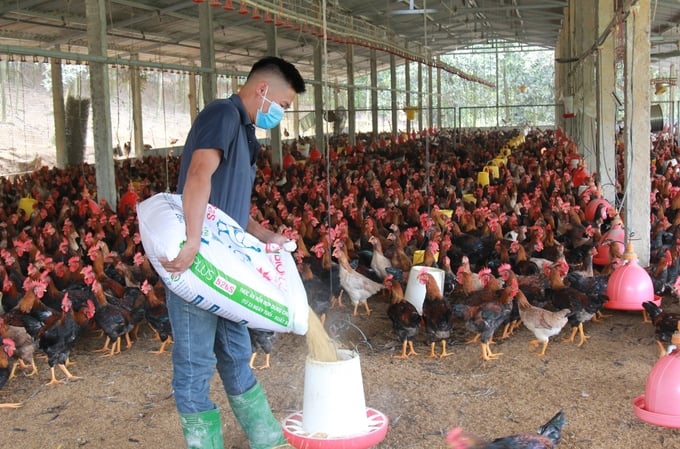
Waste management plays a crucial role in preventing diseases and protecting the environment in large-scale livestock production. Photo: Thanh Tien.
The development of livestock farming in a circular economy model involves implementing various methods and technologies in association with reducing input material consumption, limiting output emissions, and optimizing the treatment of livestock waste for use in crop production, aquaculture, and forestry. By-products and waste generated during the livestock production process are transformed into valuable resources, contributing to environmental protection.
Mr. Nguyen Thanh Tung's family in Y Can commune, Tran Yen district, operate a large-scale poultry farm with 10,000 meat chickens per batch, three batches per year. Consequently, Mr. Tung supplies over 50 tons of commercial chickens to the market annually.
After each batch, the amount of manure in the chicken farms amounts to a considerable volume, posing a challenging waste management issue. However, to date, all the chicken manure from the farm has been processed into organic fertilizer to support forestry and fruit production both within and beyond the commune.
According to Mr. Tung, fresh chicken manure is inherently organic and contains harmful bacteria and pathogens for plants. However, composted chicken manure is a nutrient-rich substance for both soil and crops.
With technical guidance from agricultural extension officers, Mr. Tung utilizes a 30-square-meter farm plot as a pit, lined with tarp, to process the chicken manure. The fresh chicken manure is removed from the coop and layered, followed by watering to create moisture. Additionally, a small amount of superphosphate is added to prevent nutrient loss during the decomposition process.
Subsequently, a layer of mud is added to cover the entire surface of the manure. A small amount of water is sprinkled to maintain moisture on a daily basis. After approximately one and a half months, the composted chicken manure can be used as fertilizer for the soil and crops.
From this composted chicken manure, Mr. Tung fertilizes an area of over 2 hectares of his family's cinnamon farm, and the remaining portion is packaged and sold to households engaged in fruit production. This process provides an additional source of income as well as addresses the environmental pollution issue caused by chicken manure.
Mr. Tran Van Diem's family in Phu Thinh commune, Yen Binh district, operates a pig farm with 100 pork pigs and 10 sows. The daily waste generated was initially a challenging issue, but the family has found a solution by combining it with the production of 1 hectare of pomelo.
According to Mr. Diem, a portion of the collected waste is composted and used as organic fertilizer. The remaining portion is processed into liquid form using biogas for combustion. After the construction of a biogas digester, his family cuts down on fuel expenses, with monthly electricity costs amounting to only approximately 300,000 Vietnamese dong.
The utilization of composted waste from pig farming to fertilize fruit farms not only enriches the soil and reduces environmental pollution, but also increases fruit productivity and quality. On the other hand, the process helps farmers save between 10 and 15 million Vietnamese dong per year on chemical fertilizers.

Effective handling of waste from pig farming generates energy source, organic fertilizer, and reduces environmental pollution. Photo: Thanh Tien.
Yen Bai province currently houses a livestock population of approximately 820,000 heads, including over 7.3 million poultry. The daily production of manure and urine from livestock production amounts to a significant volume. As a result, the local management of livestock waste poses a challenge in environmental protection, with commodity scale production areas being the most affected.
With the goal of promoting sustainable and environmentally friendly livestock production, Yen Bai province has directed relevant departments and local governments to encourage residents and businesses to participate in developing a circular economy model in agricultural production, with an emphasis on the livestock sector.
The province aims to utilize waste, by-products, and residues as inputs for other production processes by applying biological and chemical technologies and technical measures.

Organic fertilizer, after composting from animal manure, helps improve soil texture and provides nutrients for crops. Photo: Thanh Tien.
Mr. Ninh Tran Phuong, Deputy Director of Yen Bai province's Sub-Department of Livestock Production and Animal Health, added that the province directed its local governmental agencies to plan concentrated livestock production areas away from residential areas, support local people to invest in closed-loop and large-scale livestock production, and establish waste treatment systems for agricultural production.
Additionally, there is a focus on raising awareness and promoting a shift in livestock production mindset among local residents, from small-scale subsistence production to commercial livestock production. Furthermore, the emphasis is placed on investing in closed-loop livestock production and actively addressing wastewater and waste management systems.
To date, only 50% of the local livestock waste is processed for reuse as fertilizer and biogas, whereas the remaining volume is directly discharged into drains, ponds, and lakes. However, the circular economy approach in livestock production is currently primarily applicable to large-scale farm models. Small-scale farms and individual households often neglect waste treatment, and rely on the practice of applying untreated waste directly to the soil.
Consequently, the increasing prevalence of circular economy models in livestock production is a positive development which requires further expansion.
Translated by Nguyen Hai Long
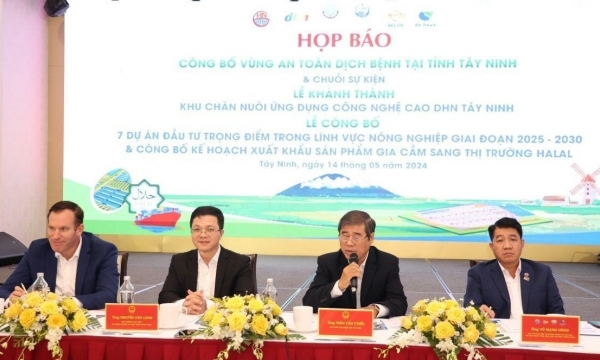
(VAN) A press conference was held to discuss the announcement of disease-free zones in Tay Ninh province and a series of events scheduled for May 19.
/2024/05/14/3402-0-222618_328.jpg)
(VAN) To develop deer farming sustainably, Ha Tinh province synchronously implements many solutions, including encouraging businesses to maintain and improve the quality of the deer breed herd.
/2024/05/14/5449-2-154830_591.jpg)
(VAN) A green environment, clean products, and the application of production technology according to VietGAP and GlobalGAP standards are the keys to helping Tan My Fruit Tree Cooperative bring pomelo to Europe.
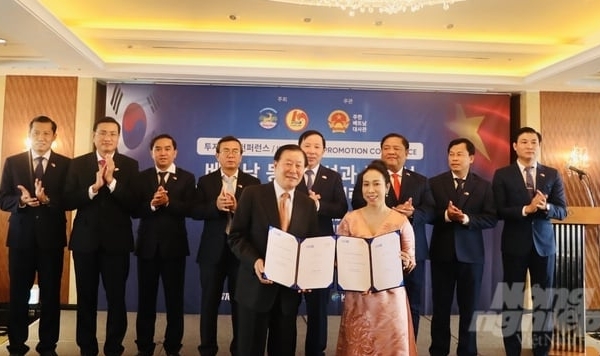
(VAN) Long An province commits to accompanying businesses, and applying investment incentives as stipulated to welcome new investment projects.
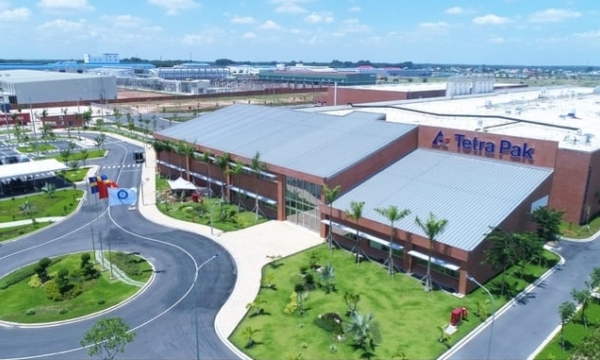
(VAN) Tetra Pak plans to expand its factory in Binh Duong by adding a production line expected to be fully operational in the third quarter of 2025.
/2024/05/13/3401-3-212929_243.jpg)
(VAN) Thanks to the application of science and technology to orange and tangerine production and a methodical e-commerce strategy, C-Farm has created quality products and effective consumption channels.
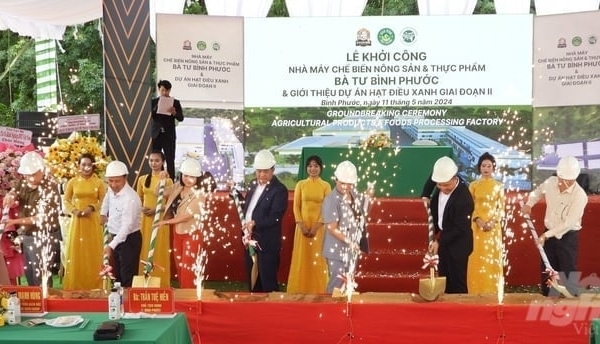
(VAN) Gia Bao Group held a groundbreaking ceremony for the agricultural processing plant in Binh Phuoc and introduced the phase 2 project of Green Cashew Nut.